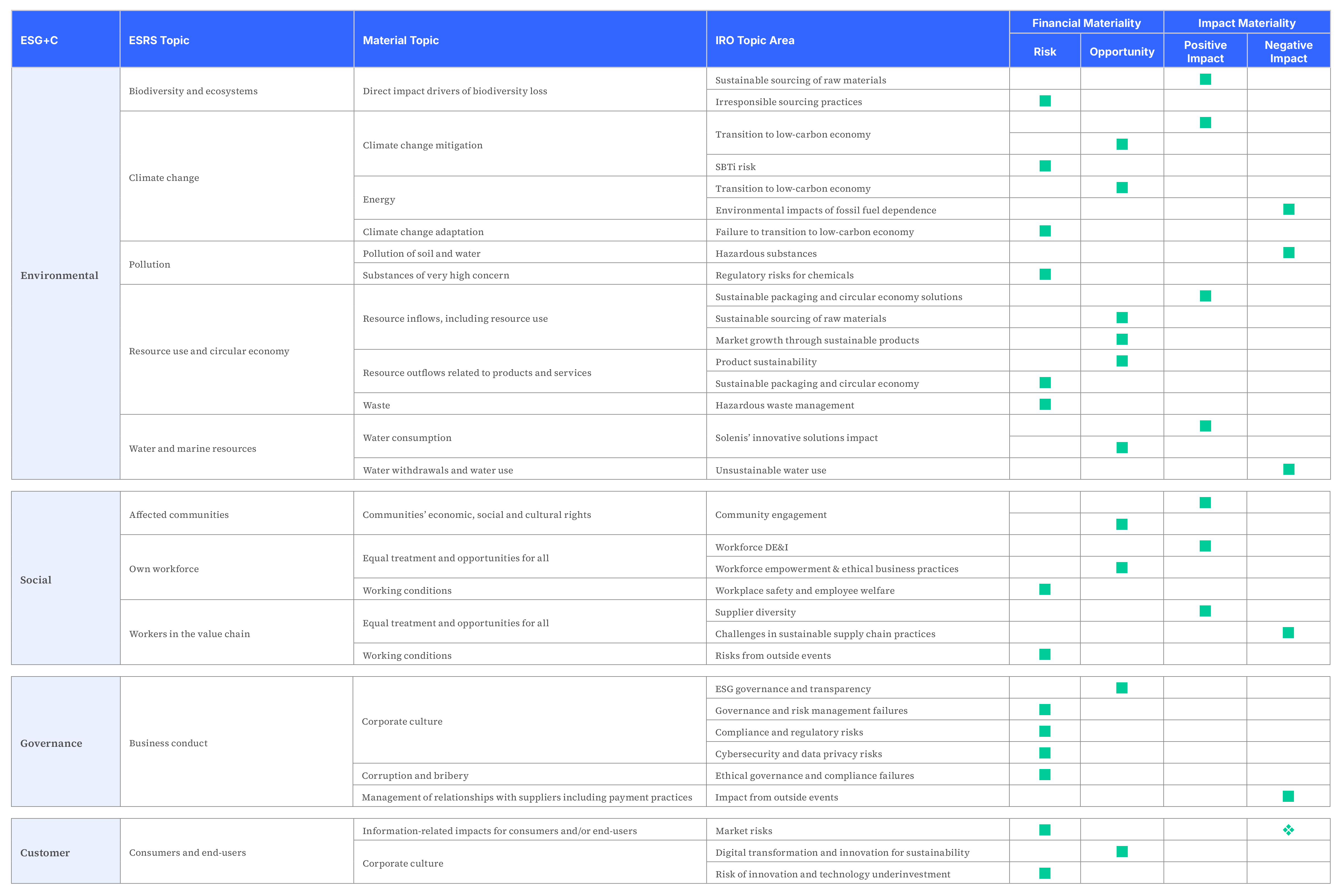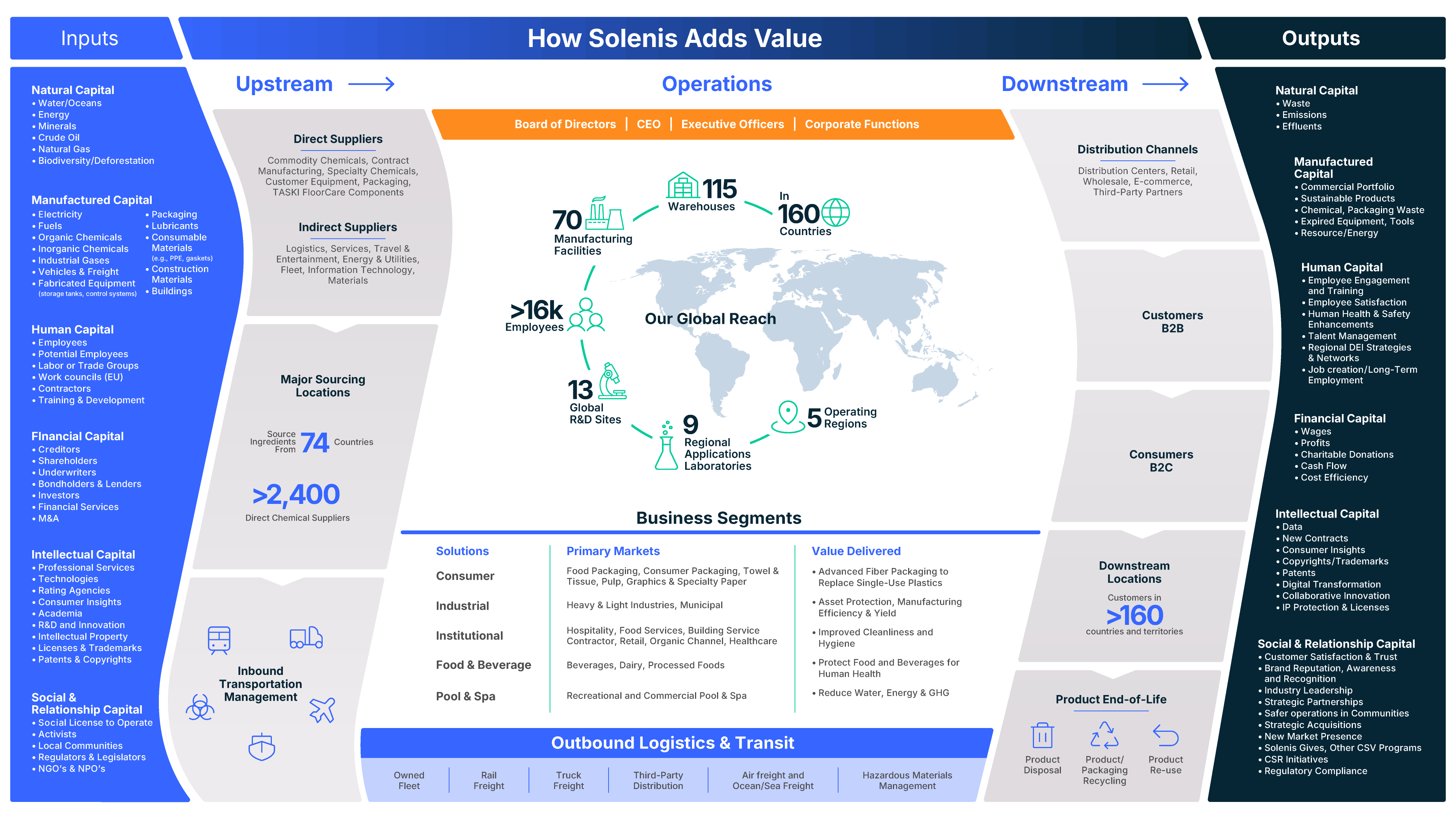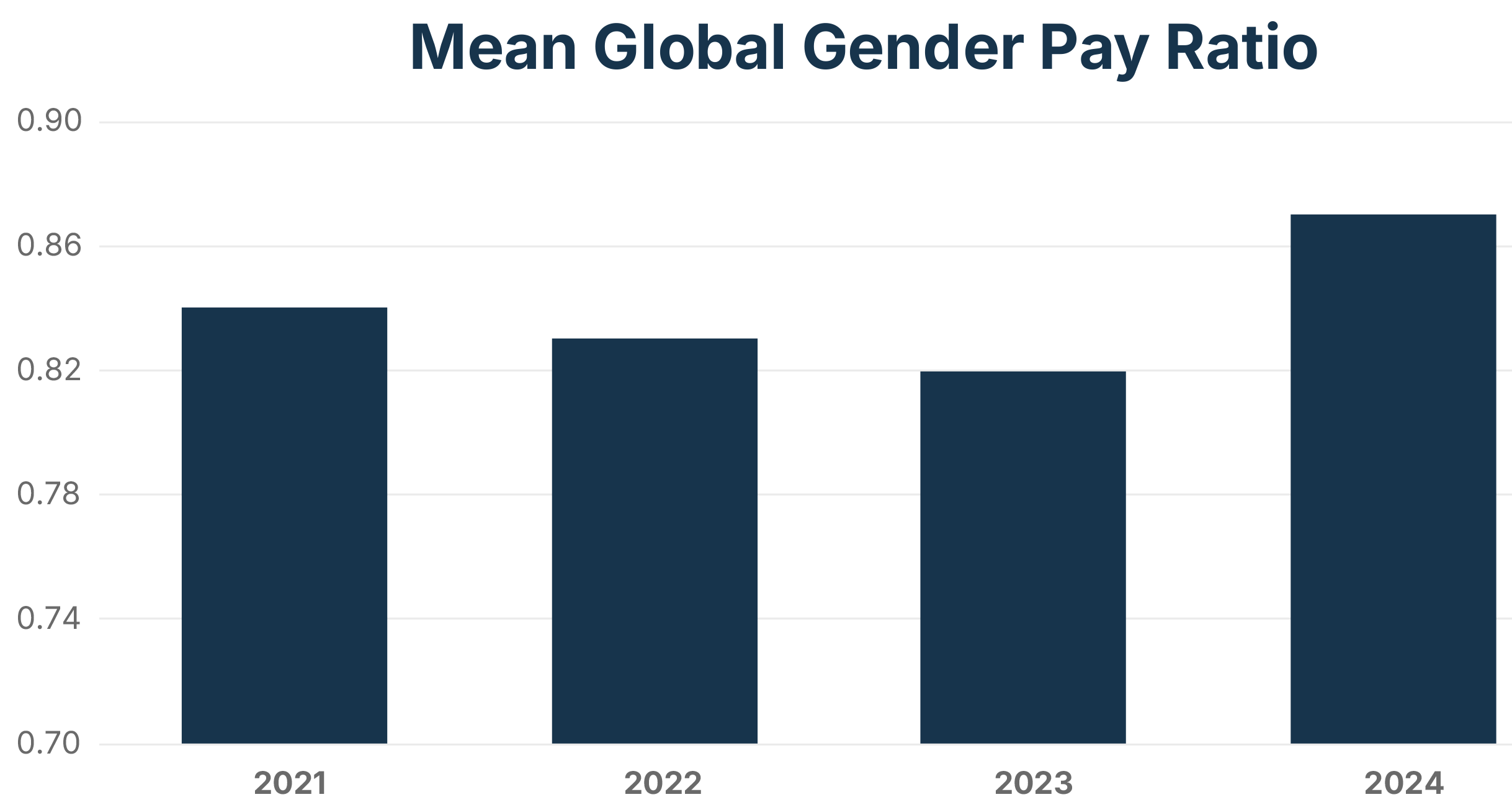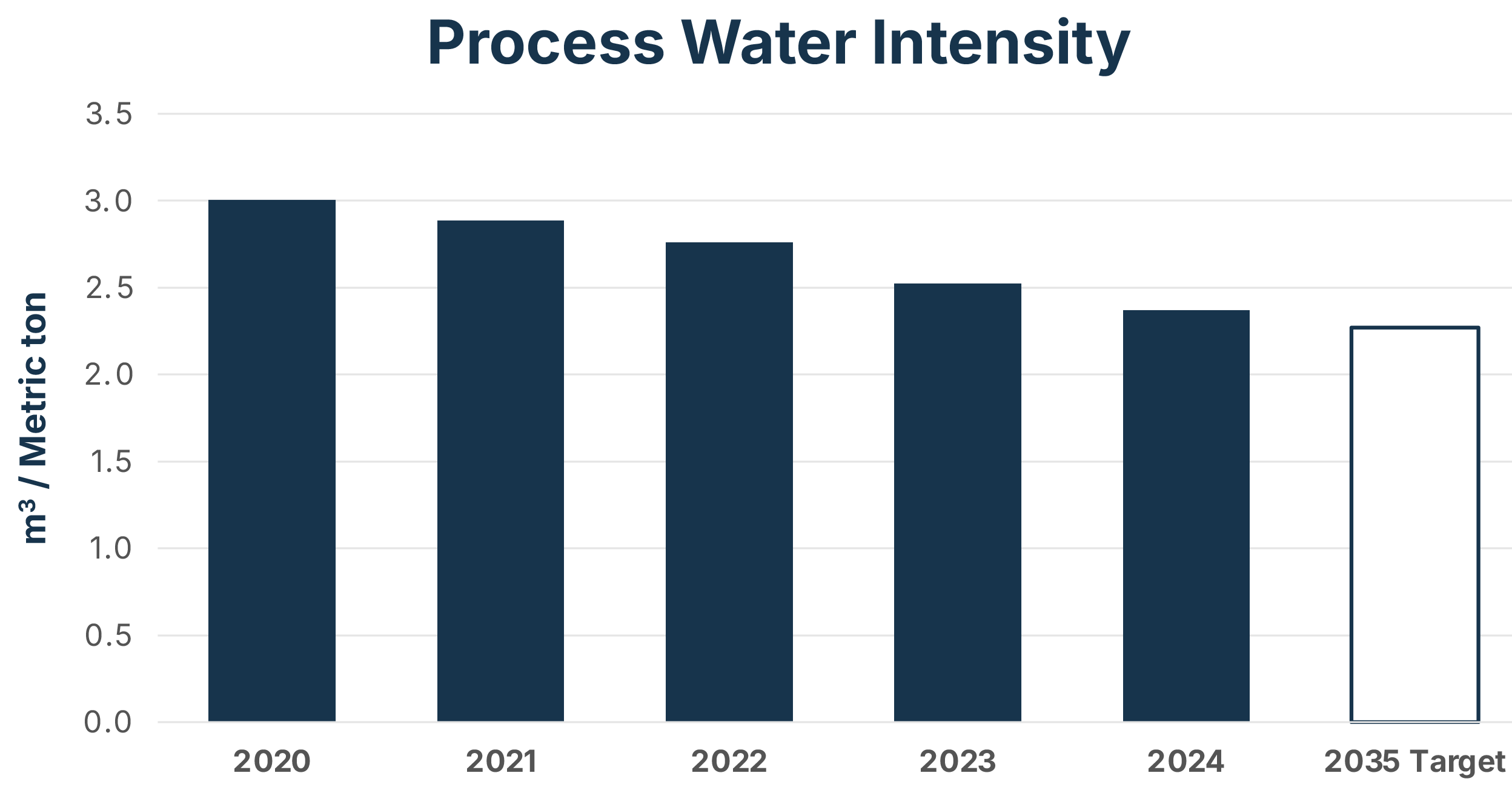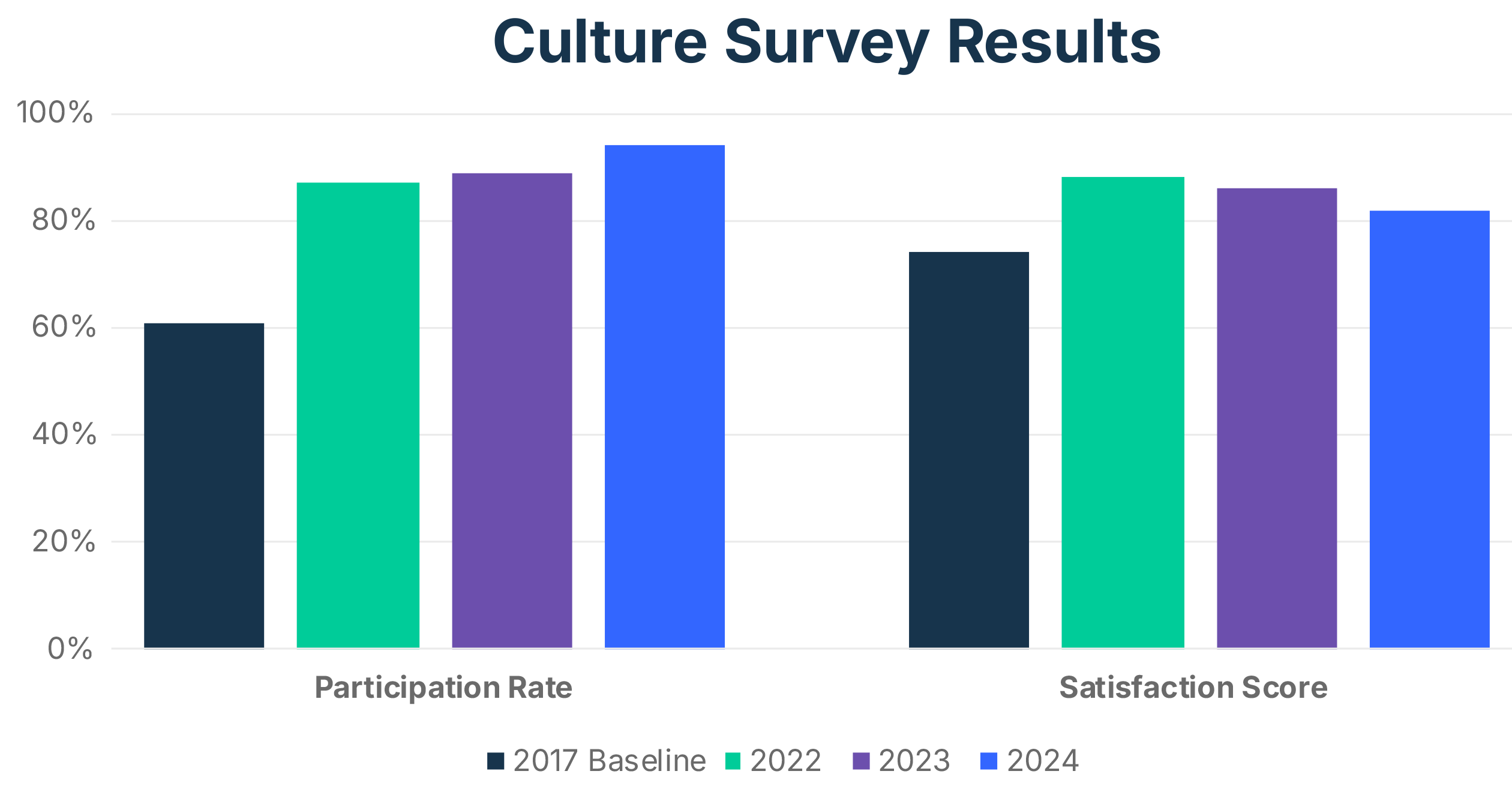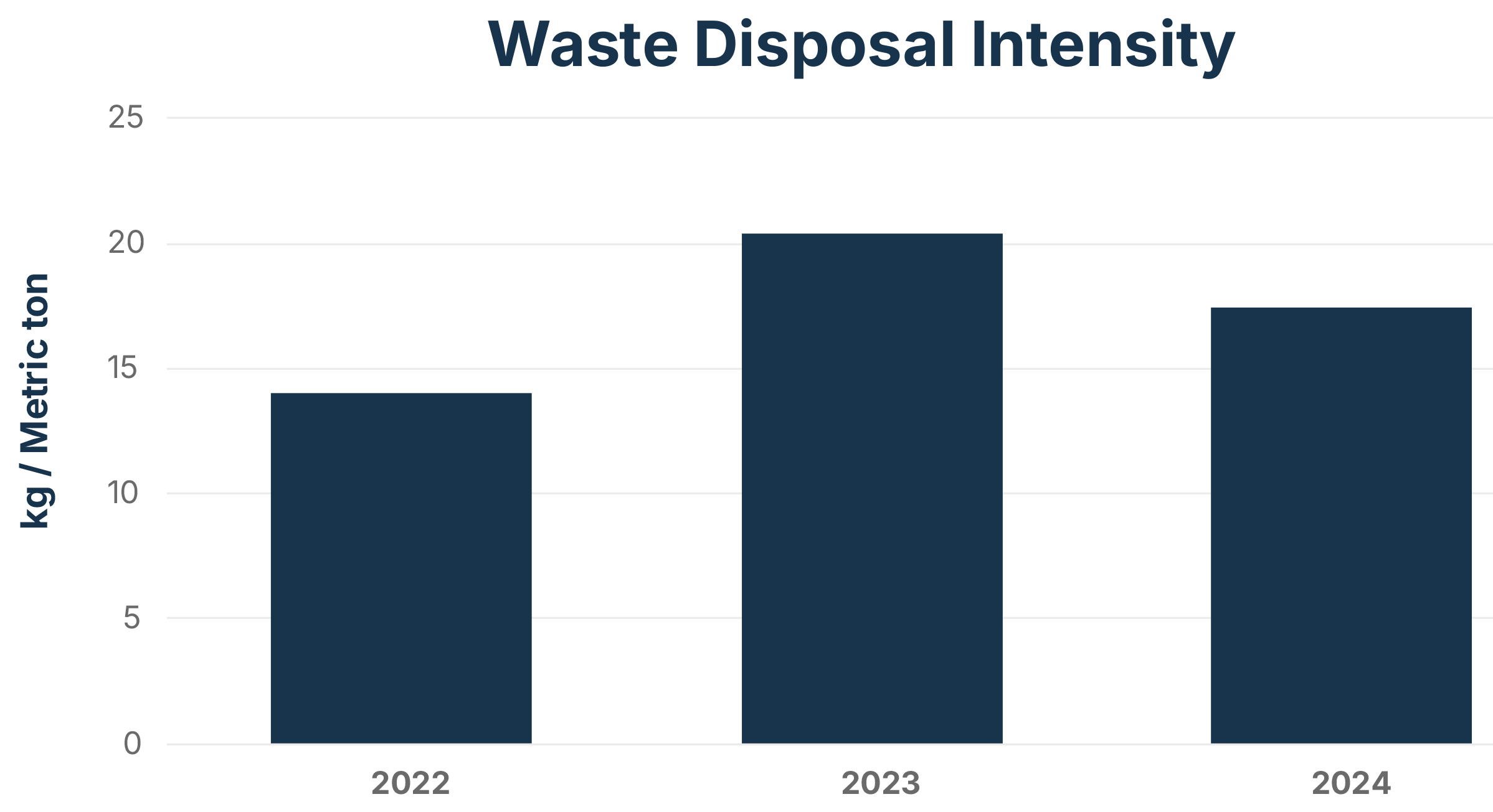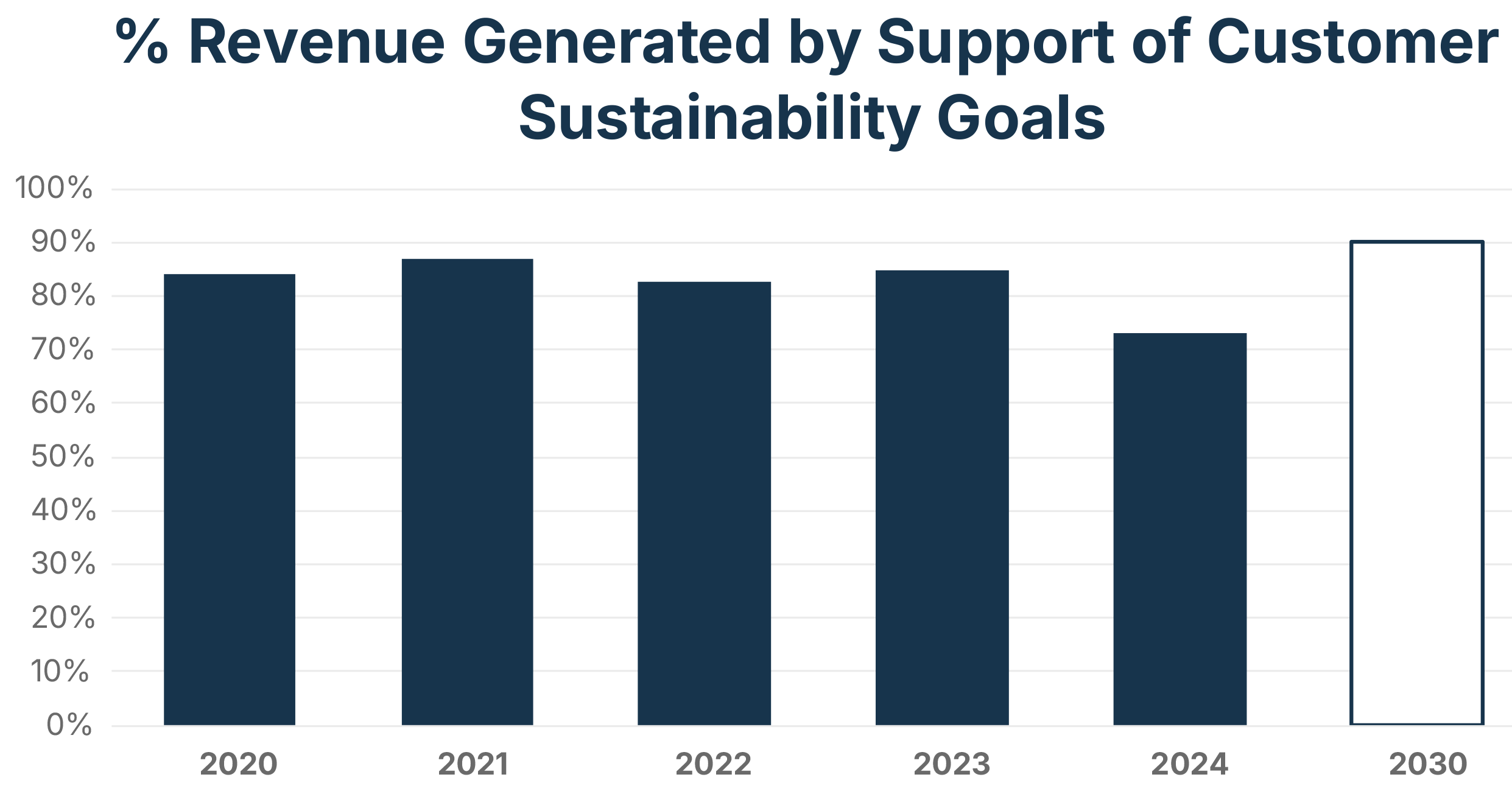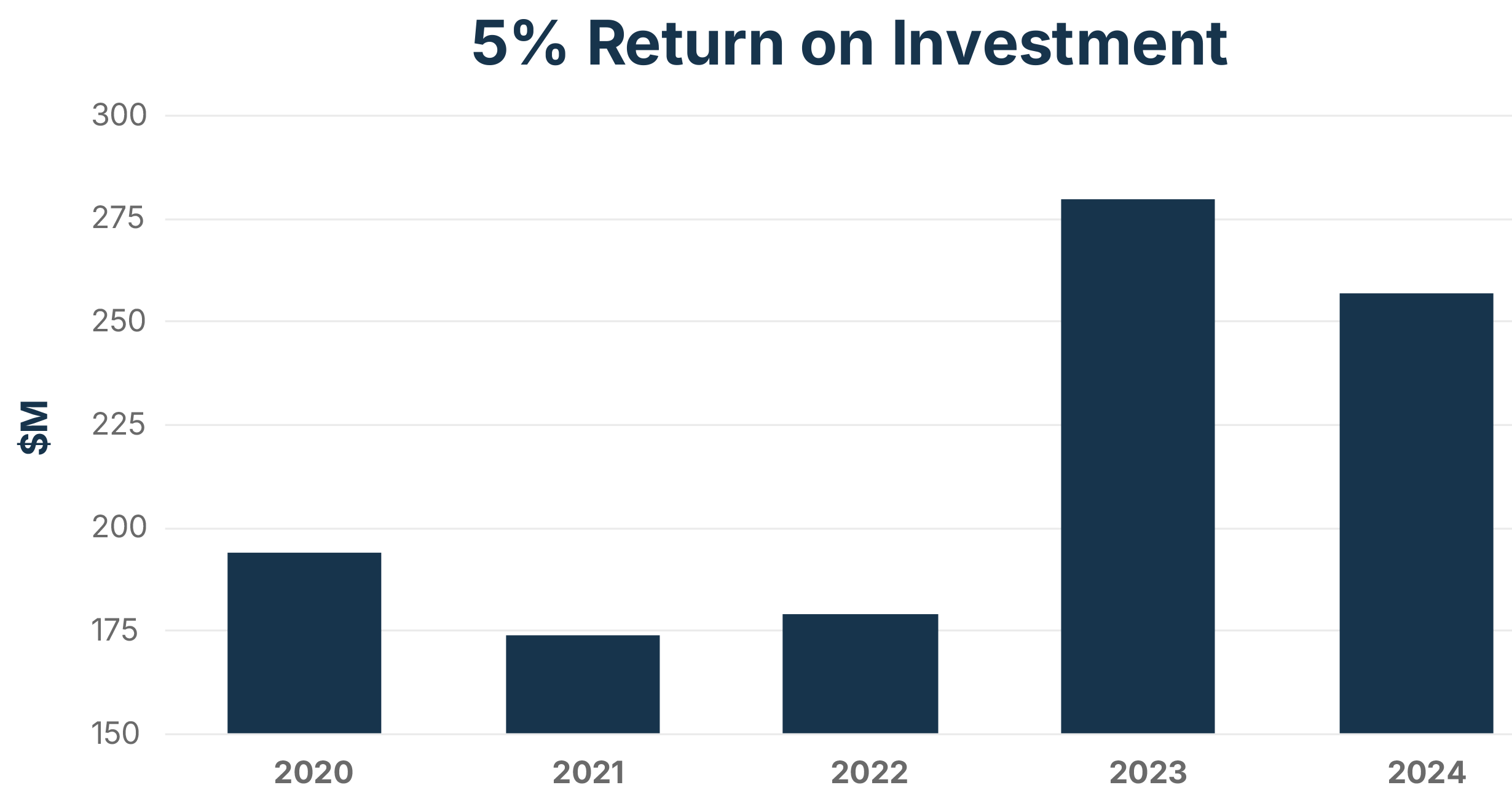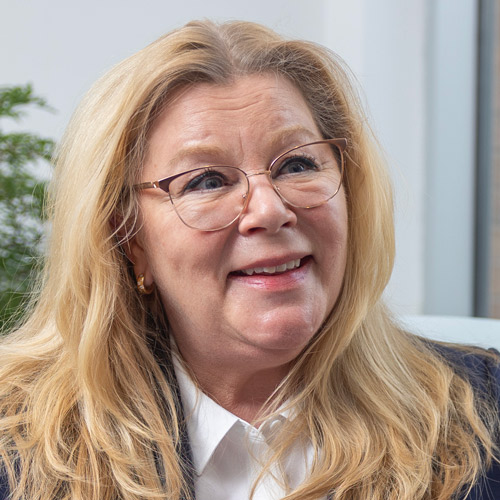
While this is Solenis’ fifth sustainability report, it is our first as a new combined, joint company following our acquisition of Diversey Holdings, Ltd. What is more remarkable is the degree to which this report presents integrated data for our new company. Getting here has been no small feat, and I am very proud of the significant amount of work on the part of our employees to be able to quickly present this unified picture of our sustainability performance in 2024.
What’s more, in 2024, we made other significant strides in enhancing our reporting and transparency. This past June, we published our first climate risk and opportunity assessment index based on the Task Force on Climate-related Financial Disclosures (TCFD) framework. We received a solid “B” rating for our very first Carbon Disclosure Project (CDP) Climate submission which reflects an extensive amount of data and information. We received our fourth consecutive EcoVadis Platinum rating. And, we are continuing to prepare for even more enhanced reporting through the Corporate Sustainability Reporting Directive (CSRD) which will require comprehensive and detailed disclosures over a wide swath of our company’s performance metrics.
As we advance our sustainability strategy, we are focused on continuous improvement in every aspect of our performance. We are now utilizing gap analysis to an even greater extent to drive focused efforts on areas of our company which require greater attention. To this end, we have completed a double materiality assessment (DMA) which not only identifies how external issues create risks and opportunities for our company, but also how Solenis impacts the world around us both negatively and positively. As a requirement of CSRD, this assessment will help us identify the key risks we may face. More importantly, it will facilitate our efforts to measure the positive impact we have via our customers on the environment and guide our sustainability initiatives going forward.
When I think back on the year, I’m incredibly proud of our accomplishments. And our progress has not gone unnoticed. Solenis continues to receive recognition from our customers as we continue to partner with them in reaching their sustainability goals. We have also received acknowledgement from many of our community partners. You’ll learn more about these achievements throughout this report which we have redesigned to reflect our new company and our new brand.
Overall, I believe that our greatest strength is the degree to which our employees are not only engaged in their work, but engaged in our mission of sustainability. We want to continue to extend this from our leadership throughout the entire organization.
Furthermore, we must continue to address our weaknesses. Our safety performance is a sore spot, and our company’s leadership is laser-focused on working to make step changes in this critical area. In addition, we must better engage our suppliers, especially as it relates to human rights and diversity issues.
I am very proud of the work that our Sustainability Task Force has done. In many regards, we are continuing our integration with Diversey, especially as it relates to sustainability policies and direction.
We have come together as one company, set new targets (including validation by the Science Based Targets initiative for greenhouse gas emissions), and continue to improve on many fronts. We believe strongly that a bigger Solenis will drive more sustainability benefits in our operations and with our customers.
Letter from Solenis’ Chief Sustainability Officer
Continued progress…as one company
While this is Solenis’ fifth sustainability report, it is our first as a new combined, joint company following our acquisition of Diversey Holdings, Ltd. What is more remarkable is the degree to which this report presents integrated data for our new company. Getting here has been no small feat, and I am very proud of the significant amount of work on the part of our employees to be able to quickly present this unified picture of our sustainability performance in 2024.
What’s more, in 2024, we made other significant strides in enhancing our reporting and transparency. This past June, we published our first climate risk and opportunity assessment index based on the Task Force on Climate-related Financial Disclosures (TCFD) framework. We received a solid “B” rating for our very first Carbon Disclosure Project (CDP) Climate submission which reflects an extensive amount of data and information. We received our fourth consecutive EcoVadis Platinum rating. And, we are continuing to prepare for even more enhanced reporting through the Corporate Sustainability Reporting Directive (CSRD) which will require comprehensive and detailed disclosures over a wide swath of our company’s performance metrics.
As we advance our sustainability strategy, we are focused on continuous improvement in every aspect of our performance. We are now utilizing gap analysis to an even greater extent to drive focused efforts on areas of our company which require greater attention. To this end, we have completed a double materiality assessment (DMA) which not only identifies how external issues create risks and opportunities for our company, but also how Solenis impacts the world around us both negatively and positively. As a requirement of CSRD, this assessment will help us identify the key risks we may face. More importantly, it will facilitate our efforts to measure the positive impact we have via our customers on the environment and guide our sustainability initiatives going forward.
When I think back on the year, I’m incredibly proud of our accomplishments. And our progress has not gone unnoticed. Solenis continues to receive recognition from our customers as we continue to partner with them in reaching their sustainability goals. We have also received acknowledgement from many of our community partners. You’ll learn more about these achievements throughout this report which we have redesigned to reflect our new company and our new brand.
Overall, I believe that our greatest strength is the degree to which our employees are not only engaged in their work, but engaged in our mission of sustainability. We want to continue to extend this from our leadership throughout the entire organization.
Furthermore, we must continue to address our weaknesses. Our safety performance is a sore spot, and our company’s leadership is laser-focused on working to make step changes in this critical area. In addition, we must better engage our suppliers, especially as it relates to human rights and diversity issues.
I am very proud of the work that our Sustainability Task Force has done. In many regards, we are continuing our integration with Diversey, especially as it relates to sustainability policies and direction.
We have come together as one company, set new targets (including validation by the Science Based Targets initiative for greenhouse gas emissions), and continue to improve on many fronts. We believe strongly that a bigger Solenis will drive more sustainability benefits in our operations and with our customers.
Chief Sustainability Officer
